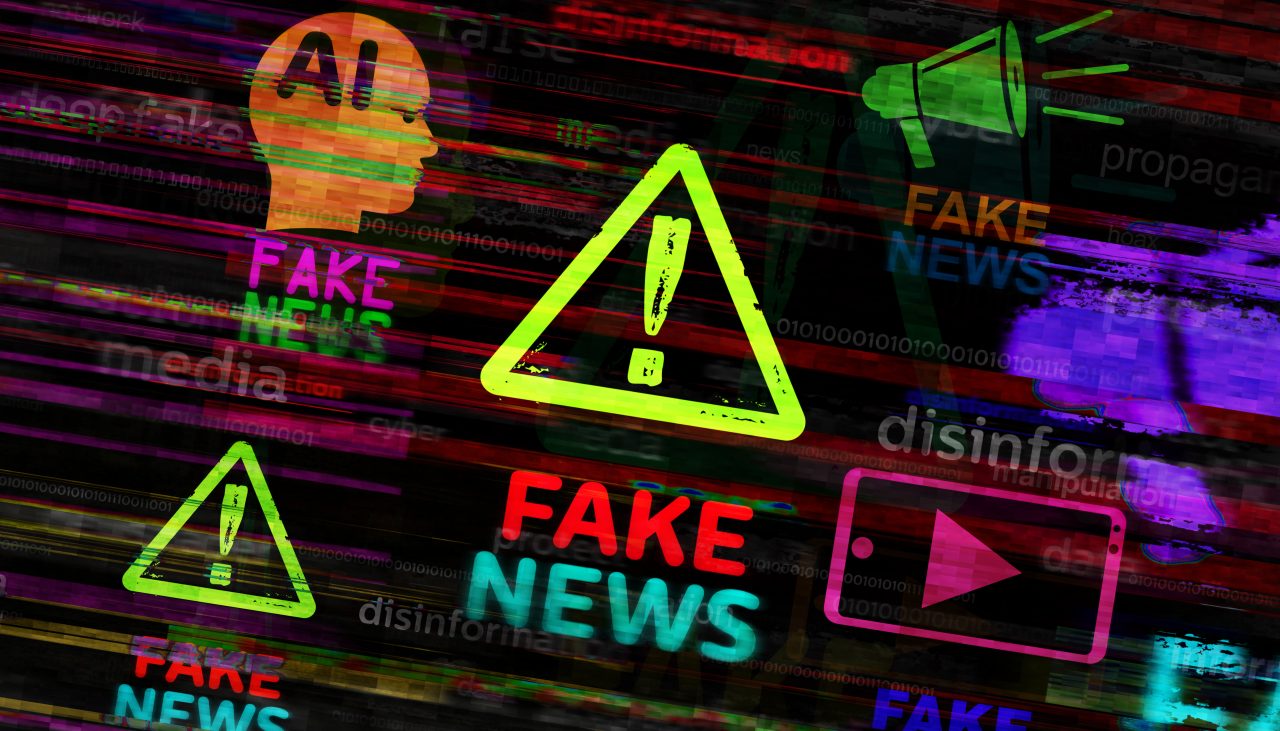

The rise of AI chatbots and deepfakes has sparked concerns over the potential spread of misinformation. Instances like ChatGPT’s premature declaration of Labour as the winner of the UK general election 2024 highlight the issue. These errors, known as ‘hallucinations,’ stem from the probabilistic nature of language models rather than intentional misinformation campaigns. Despite efforts by AI companies and the UK government to address these flaws through artificial intelligence regulation UK, the onus also lies on businesses and individuals to ensure accuracy. In sensitive arenas, such as elections, misinformation can undermine democratic processes and erode trust among stakeholders. AI regulation and governance play crucial roles in overseeing AI technologies and promoting responsible usage. Cultivating a culture of verification and critical thinking is essential to mitigate these risks. Whether dealing with deepfakes or AI-generated content, always validate information before dissemination to promote transparency and reliability in AI usage. The UK government’s Department for Science, Innovation and Technology is at the forefront of regulating AI to safeguard democratic integrity.
Embracing AI technologies involves a deep commitment to ethical practices and responsibility, especially in information sharing. Instances of AI errors, such as Chatbot hallucinations, underscore the importance of vigilance. These errors are not aimed at spreading falsehoods but are inherent to probabilistic language models. Businesses integrating AI tools must adopt stringent verification processes to avoid disseminating inaccurate information. Particularly in high-stake contexts like elections, misinformation can severely damage public trust and democratic integrity. AI governance and the implementation of best practices, as outlined by bodies like the Information Commissioner’s Office and frameworks such as the EU AI Act, are crucial. Promoting a culture of verification and critical thinking can help prevent AI-generated content misuse. As we advance into the age of AI and digital hubs, ensuring information accuracy and transparency is paramount in maintaining the ethical use of these powerful tools. Proper AI regulation will be key to navigating this landscape responsibly.
In an AI-driven world, fostering a culture of verification is essential to mitigate the risks associated with misinformation. As AI tools become increasingly integrated into various sectors, their potential to generate false or misleading information cannot be overlooked. Instances like the AI chatbot error during the UK general election 2024 serve as stark reminders of these vulnerabilities. Businesses and individuals alike must adopt rigorous validation processes to ensure the accuracy of AI-generated content. The UK government, in collaboration with AI and digital hubs, must lead efforts in promoting AI safety and appropriate transparency. AI developers play a crucial role in implementing these standards to mitigate AI risks. Events like the AI safety summit are pivotal in bringing together stakeholders to discuss and address these challenges. By promoting critical thinking and verification practices, we can safeguard democratic integrity, maintain public trust, and harness AI’s capabilities responsibly. The path forward necessitates a collective effort to prioritise transparency and accuracy, ensuring that AI serves as a tool for innovation rather than a source of misinformation.
As powerful AI systems continue to reshape various facets of society, their influence in democratic processes demands urgent attention. The incident of ChatGPT erroneously declaring Labour as the winner of the UK general election 2024 exemplifies the potential dangers when AI systems propagate misinformation. Such errors, often referred to as ‘hallucinations’, are not deliberate attempts at deceit but arise from the probabilistic nature of AI technologies. Despite ongoing efforts by AI developers to address these issues, the responsibility also falls on businesses and individuals to verify AI-generated content rigorously. In the realm of democratic elections, where the stakes are exceptionally high, misinformation from powerful AI systems can erode public trust and destabilise democratic integrity. Therefore, fostering a culture of critical thinking and employing stringent validation processes are critical steps in protecting democracy from the unintended consequences of AI. Additionally, a thoughtful approach to AI regulation is necessary to ensure these systems are used responsibly. By doing so, we can ensure that AI technologies act as a constructive force, upholding the principles of transparency and accuracy essential for the healthy functioning of democratic institutions.
In the realm of business, the integration of AI technologies offers a multitude of opportunities for innovation and efficiency. However, as AI systems become increasingly embedded in business processes, ensuring transparency and accuracy through effective AI regulation cannot be overstated. AI errors, like the chatbot hallucinations witnessed during the UK general election 2024, highlight the potential for misinformation that can undermine stakeholder trust and business integrity. Therefore, regulating AI with stringent verification and validation processes for AI-generated content is crucial. By fostering a culture that prioritises critical thinking and meticulous verification, companies can mitigate the risks associated with these errors. Upholding transparency and accuracy not only ensures the responsible use of AI but also reinforces the foundational principles of ethical business practices. In doing so, businesses can harness the full potential of AI while maintaining the trust and confidence of their stakeholders. The UK government, through its Department for Science, Innovation and Technology, and initiatives like the AI and Digital Hub, must lead the way in AI governance to support these efforts.
Election seasons present a unique set of challenges, particularly in ensuring the integrity of information shared with the public. The incident involving ChatGPT erroneously declaring Labour as the winner of the UK general election 2024 underscores the potential pitfalls of AI technologies without stringent verification processes. These ‘hallucinations’, stemming from the probabilistic nature of language models, are unintentional yet can have far-reaching consequences. To navigate these AI risks, it is imperative that both businesses and the UK government adopt a culture of meticulous verification and critical thinking. This involves implementing rigorous validation mechanisms for AI-generated content and promoting transparency. The Information Commissioner’s Office should also play a role in overseeing AI regulation to protect democratic processes from the unintended spread of misinformation, thereby upholding public trust and maintaining the integrity of elections in the age of AI.
Artificial Intelligence, particularly highly capable narrow AI language models, has revolutionised the way we generate and interpret textual content. However, despite their remarkable capabilities, these models are not without limitations. Language models operate on probabilistic patterns and historical data, which can lead to errors known as ‘hallucinations.’ These inaccuracies are not malicious but are intrinsic to the current architectures of AI systems. The erroneous declaration of electoral outcomes, such as the example of ChatGPT during the UK general election 2024, underscores the critical need for comprehensive validation processes. Language models, while powerful, lack an inherent understanding of context and nuance, making them susceptible to generating plausible yet false information. It is imperative for businesses and institutions employing AI to remain vigilant by implementing rigorous verification practices and fostering a culture of critical thinking. The Digital Regulation Cooperation Forum (DRCF) and existing regulators must play a central function in this effort, ensuring that UK regulation is robust and adaptive. Only by acknowledging and addressing these limitations can we responsibly harness the power of AI, ensuring its contributions remain beneficial and trustworthy.
While artificial intelligence offers remarkable advancements in technology, it is essential to acknowledge and address its inherent flaws—from bugs in the software to deeply embedded biases in the datasets. Bugs, such as the infamous ‘hallucinations’ where AI models generate erroneous or misleading information, highlight the technical vulnerabilities of these systems. For instance, the instance where ChatGPT erroneously declared the winner of the UK general election 2024 illustrates the potential for AI tools to propagate misinformation with significant implications. Beyond technical bugs, AI risks related to biases present a more profound and often more insidious challenge. These biases can arise from historical data that reflects societal prejudices, leading AI models to perpetuate and even amplify these biases in their outputs. To responsibly harness AI’s capabilities and ensure AI safety, it is crucial for developers, businesses, and individuals to implement rigorous validation procedures, foster a culture of critical thinking, and actively work towards mitigating biases. Regulatory bodies, such as the UK regulators and the EU with their AI Act, play a pivotal role in regulating AI and ensuring AI governance. Markets authorities must also be vigilant in overseeing AI regulation to prevent misuse and ensure ethical standards. Only through a meticulous and conscientious approach can we ensure AI serves as a reliable and equitable tool in various facets of society.
As AI technologies change, striking a delicate balance between progress and accountability is of paramount importance. The myriad opportunities presented by AI systems—from operational efficiencies to innovative breakthroughs—must be weighed against the potential pitfalls they introduce, such as misinformation and embedded biases. The episodes of AI-generated ‘hallucinations,’ such as the erroneous declaration of electoral outcomes during the UK general election 2024, serve as stark reminders of the technical limitations and ethical challenges inherent in AI models. To navigate these complexities, it is essential to establish stringent AI assurance protocols and to cultivate a culture of critical thinking and ethical awareness among developers, businesses, and users alike. AI-related risks necessitate the development of robust AI regulation by entities like the UK government. By fostering these practices, we can ensure the responsible evolution of AI technologies, leveraging their vast potential while safeguarding the principles of transparency, accuracy, and fairness that underpin trust in AI-driven systems.


